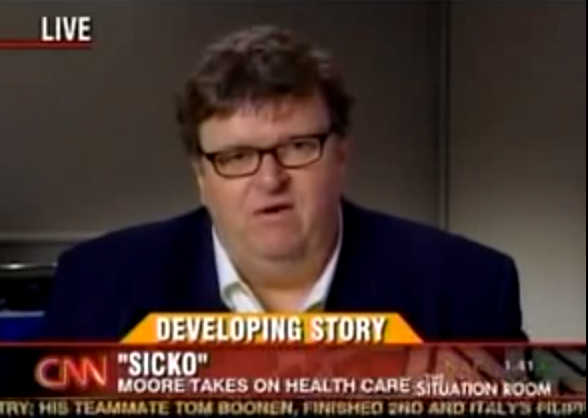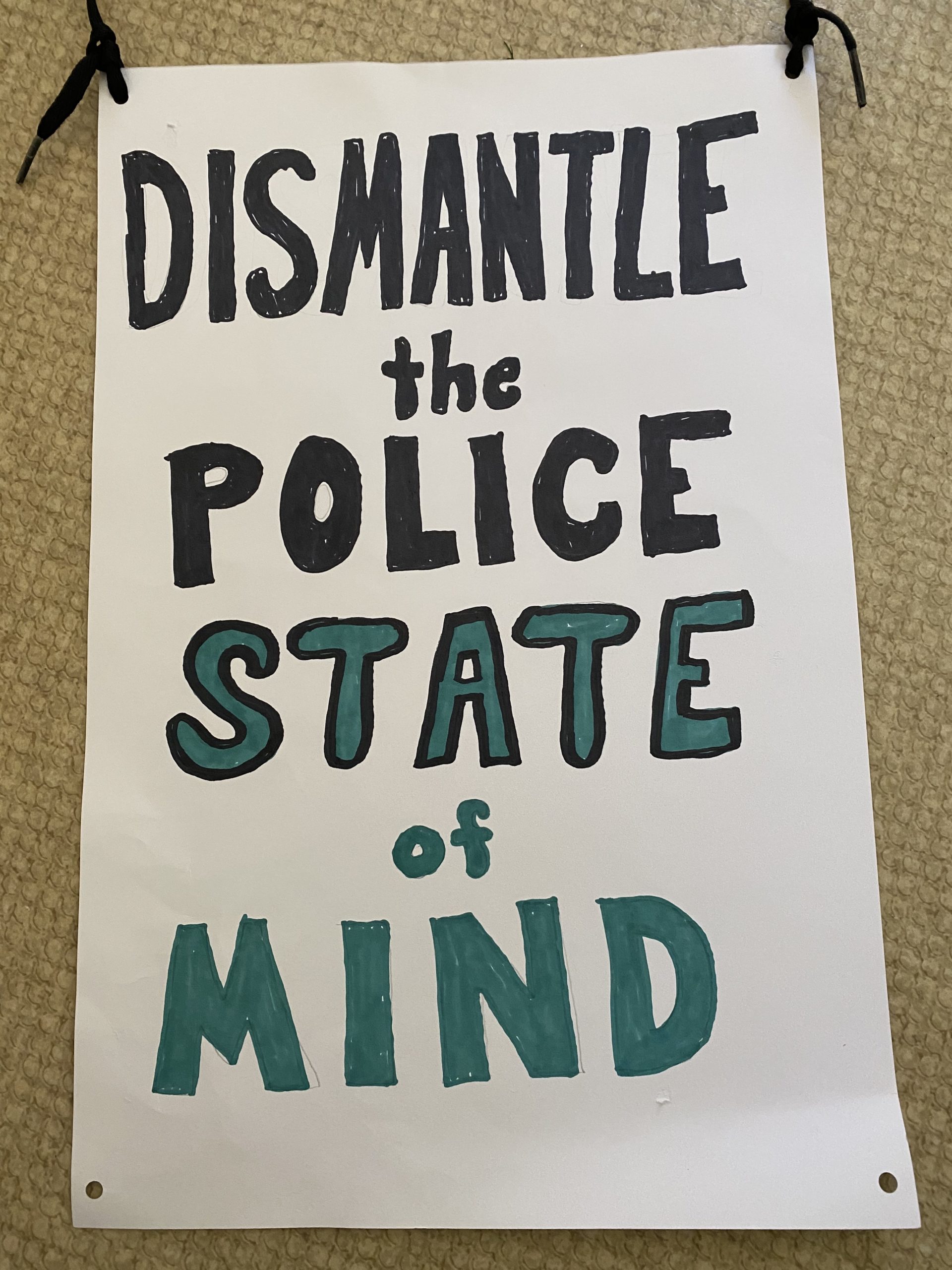This is Part III in a four-part series inspired by Bill Moyers’ interview with Wendell Potter, former Head of Corporate Communications at CIGNA insurance company.
I am an immigrant. I came to the US from my native Germany in 1987 to go to college. While much has been written lately about the superior European health care systems and social attitudes in general, let me first expound on some unique American strengths of character that might at times be harder to see for natural born citizens, especially those of you who have been disillusioned with your own country, based not only on the last 8 years but the great challenges of getting health care for everyone.
My stepfather, Tom, is an American from Kansas, so I had had some pretty good exposure to middle-American culture from the time I was 12 years old. My hometown, Stuttgart, also hosted four major US military bases, so growing up there we had a fair amount of contact with GIs. The one thing that always struck me and that I admired about Tom and his Army buddies was their unflinching yet super laid back “can do” attitude.
While Germans often greet a looming problem with a healthy dose of skepticism and not uncommonly resign themselves to situations they seem to be stuck with, Tom was always the one to look at ostensibly insurmountable problems with a smile, ready to get creative and try out different ways to solve the impasse. It wasn’t even political, but more of an innate attitude that if you just walk up to people and talk to them personally you could change the dynamics of an established routine and thus achieve a different outcome to a situation. It wasn’t uncommon that the stodgy city hall clerk would issue a permit that he wasn’t supposed to or the baker down the street would put another batch of pretzels in the oven after closing time simply because Tom lit up their dreary day with his exotic yet determined optimism.
My other exposure to the deep-seeded American spirit was through music and the relentless belief in the power of an individual to change the status quo and societal assumptions: We had no Pete Seeger, Janis Joplin, Jimi Hendrix, Bob Dylan, Joan Baez, Willie Nelson, Johnny Cash, Grace Slick, or Bruce Springsteen in Germany. These artists to me represented all that was good and honorable about America, and the fact that their music was big and widespread enough to be mainstream made me hopeful and taught me that times really can change if all the individuals who seek a more just and kind world speak up and band together.
This was the premise under which I arrived on a sunny August day twenty-two years ago in Hayward, California, with nothing but a backpack and my guitar. During my first year at Hayward State, a low-key public university east of San Francisco, the impressions of America I’d had from afar were confirmed. Despite my lack of vocabulary and grammatical correctness, the professors graded me on the content of my essays, encouraging me to express all the ideas I had, even though the packaging wasn’t quite right.
It was truly refreshing; whereas at a German university I would have been cramming and regurgitating old masters and had my form and style nitpicked to death, here my contributions and ideas, no matter how unorthodox, were welcomed and encouraged. I took classes ranging from Love and Friendship to Shamanic Journeys to History of Rock ‘n’ Roll, topics of study truly unthinkable in Germany, and the best grades I received were for papers I wrote with the most daring hypotheses. Being a creative and free thinker was rewarded in the USA, and despite some of this culture’s apparent flaws (e.g. its unbridled wastefulness), this was something that struck me deep in my soul.
The first time I saw Michael Moore was in his 1989 documentary debut Roger & Me, a film about his attempts to get an interview with then GM CEO Roger Smith regarding massive layoffs and its effects on his hometown of Flint, Michigan. He immediately struck me as quintessential American: A rugged individual going his own path, unfazed by what all the “normal” people thought of him. He was passionate and quirky, with a great sense of humor and determined to make something happen that everyone else said he shouldn’t and/or couldn’t. The mere idea of a dude in baggy jeans and nerdy glasses wanting to interview the CEO of one of the largest corporations in the world was so deliciously weird and subversive, and yet it felt so innately American.
To me, the American spirit is rooted in rebellion. Breaking away from the stranglehold of the old world and its religious, social, and economic strangleholds. Breaking a new path to thwart old and established powers and systems, giving the underdog a chance to get ahead in a world that is traditionally rigged against newbies in favor of old wealth and nobility, whatever form it manifests itself in any given epoch.
Michael Moore realized that the wealthy and powerful elites had started to dress up as populists, big corporations selling the American Dream of freedom, wealth and individuality when there was none to be had, safe for a few lucky and connected ones. He understood the scheme for what it was — a cynical plot to market to us the idea that we’re all great little rebels for driving their cars while enriching a few top executives at the expense of workers and the communities they live in.
With each new film and subject matter, Mike kept stumbling upon manifestations of that same scam: people’s deep desire to be free and independent being manipulated by these new corporate Überlords peddling slick slogans to reinforce the desire while slowly eroding our options to live freely or independently. All you needed to do was ask some of the people whose lives had become enslaved to this corporate matrix (like the old ladies working at the missile factory in Bowling for Columbine), and Mike did just that.
Of course, the corporate puppeteers did not like Mike: when they talk about these great American values like freedom, creative expression and thinking independently, they don’t really MEAN it. They just want you to buy their stuff and get that tingly feeling of being a rugged individual rather than acting on it and asking some REAL questions. For a while they just tried to ignore Mike like a court jester who was an annoying pest with whom you just didn’t engage. But when his movies exposing their schemes started to go mainstream the gloves came off.
Which brings me to Sicko, Wendell Potter, and the insurance companies’ all-out assault on Michael Moore’s character: Along with their minions in Washington and the corporate media apparatus they have spent millions and filled the airwaves to plant seeds of doubt, discredit and slime Michael Moore, painting him as some sort of left wing communist who hates his country. No price is too high to destroy his character because Mike will go straight to the emperor and pull his clothes off, like he did in this interview with Wolf Blitzer:
[youtube=http://www.youtube.com/watch?v=JpKoN40K7mA]There’s been much discussion on whether quoting or showing Michael Moore is useful or harmful in the fight to take our country back from the corporate lords. While I understand those who say he’s like touching the 3rd rail of public discourse, I think that attitude is like kneeling down before the throne and giving in to fear and deception. In fact, if we want to win the big battles for public health care and clean energy, we need more Michael Moores in this country. And this isn’t really about Michael Moore, but it’s about both our right and responsibility to speak out as citizens and free, independent thinkers.
See, to me, an immigrant from Germany, Michael Moore is as American as they come and not some sort of a weird radical lefty. He walks to the beat of his own drum, he’s self-made, folksy, makes fun of everyone, and wears baggy jeans. It’s just so quintessential midddle-of-the-road yankee doodle that makes me wanna sing the Star Spangled Banner every time I see him.
It’s high time to free him from the “extremist” label corporations have paid lots of money to stick him with. Wendell Potter pretty much admitted that the caricature of him has all been cooked up in the corporate marketing vaults, and so now it’s time for the people to take back the labeling power from the big wigs and show the world that good old Michael Moore is as American as pie.







